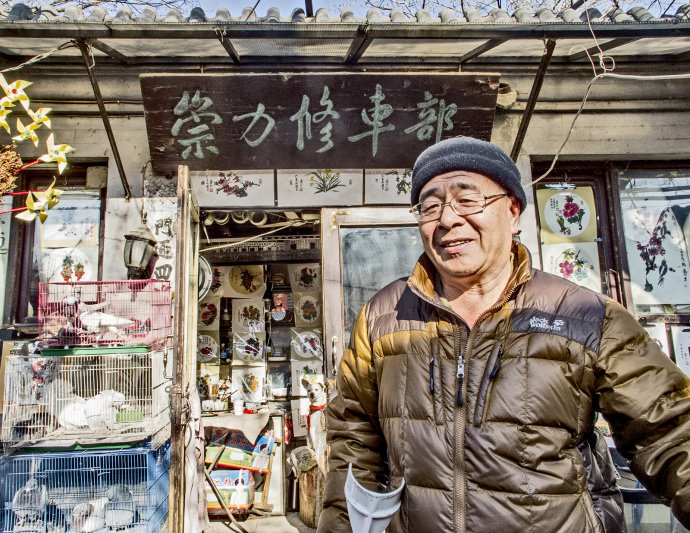Reform drives nation along path to prosperity

The pioneering bicycle mechanic: Chong Li

At the end of Beijing's Fuxue Hutong there is a quiet courtyard full of old photos, ink paintings and birds chirping in cages. A large wooden plaque hanging above the entrance reads "Chongli Bicycle Repair Shop."
In summer, the owner, 61-year-old Chong Li, usually sits in the front yard with his 7-year-old white chow chow dog basking in the sun. Forty years ago, Chong would have not imagined today's peacefulness and relaxation because bicycles were the main form of transportation and the yard was always crammed with machines awaiting repair.
Starting in 1977, Chong's original stall was one of the first private businesses in the capital, and maybe even the country. However, he was not officially granted a business permit until the reform and opening-up policy was adopted in 1978.
"I was the first to try this business model. The prospects were very bleak before the policy was adopted," he said.
A leg disability left Chong unemployed after he graduated from high school in 1977, so his teachers helped him start a small bicycle repair stall, which was later upgraded to a store. He viewed it as his best choice because it required little investment and he was practical.
"Bicycles and small pedicabs played a very important role in every household at that time, as well as watches and sewing machines. People relied solely on bikes to commute, travel or pick up children from school. The bicycle was the most important form of transport. Cars didn't exist."
People poured into Chong's yard, especially at weekends, when they often left their bikes for maintenance after the week's commute. "I did my best to fix every bike. Whether it was new or old, the bike meant a lot to the family, so I treated each one with care," he said.
His business was not the only bike repair shop in the neighborhood. There were two others nearby, both State-owned, but they still could not meet the huge demand.
The late 1980s was the peak period for bicycles. However, the peak was short-lived. People became richer as reform and opening-up boosted the economy, and automobiles gradually began to dominate the roads.
Chong closed his business in 2005. "With the rapid development of society, many neighbors moved away and abandoned their bikes. They had cars, and buses were just on their doorstep. As traveling became much more convenient, bikes slowly disappeared."
Although he now makes a living by selling goldfish and paintings, he has been pleased to see bikes regain their former popularity in recent years as a greener mode of transportation, and he is amazed at how they have developed.
"Now the lock just flips open by simply scanning a QR code," he said. "It's much easier than sticking a key into a keyhole."
- Data shows China's water governance achievements
- Notable progress in China's water management
- All-China Women's Federation sends much-needed relief supplies to Xizang
- More aftershocks expected following deadly Xizang earthquake
- HKSAR chief executive mourns victims of Xizang 6.8-magnitude quake
- Milestones in China's high-speed railway development





































